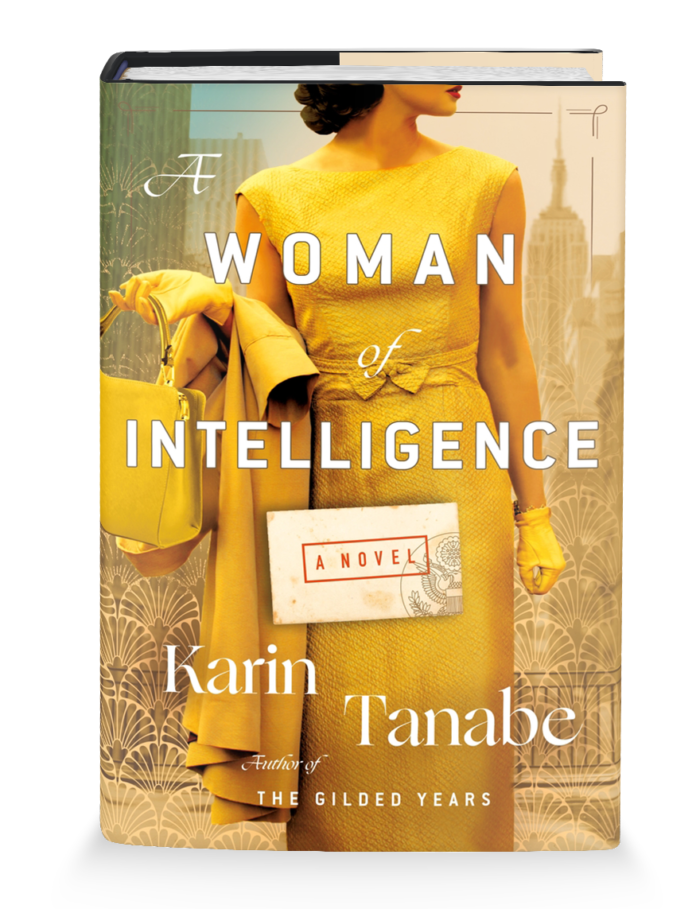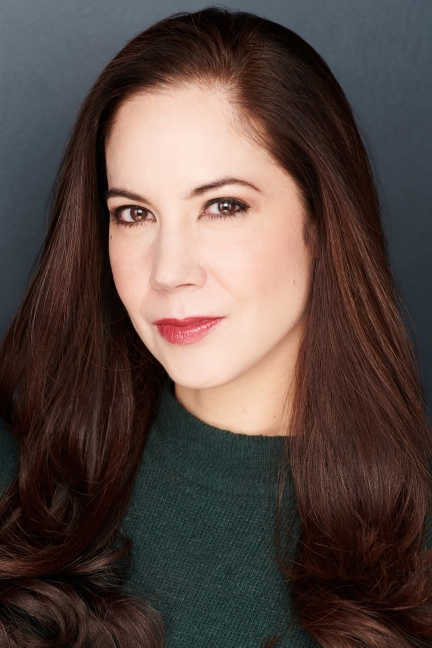by Karin Tanabe
Karin Tanabe’s A Woman of Intelligence is an exhilarating novel of post-war New York City, and one remarkable woman’s journey from the United Nations, to the cloistered drawing rooms of Manhattan society, to the secretive ranks of the FBI. Read on for an excerpt.
Only one word cut through the noise of a New York afternoon.
The rest of my neighbor Carrie’s monologue was lost to me as a Packard ambulance raced past us along Fifth Avenue, siren screaming and bright red gumball light flashing. On its oversize tires, the Packard looked like a white scarab beetle, slicing a path through Manhattan’s congested Upper East Side.
Our view of wide and pulsating Fifth Avenue was flanked by a parade of elms now in full leaf. When the shriek of the sirens had faded, we turned our attention back to each other, two women seated on a wooden bench at the playground near the Metropolitan Museum of Art’s Egyptian wing.
Carrie, a red-headed, doe-eyed girl with a pin-up body and an alabaster face, scrunched up her pretty features. “Those ambulances are awfully loud, aren’t they?” she noted.
“Indeed.”
She glanced uptown, as if they might suddenly start rolling down Fifth Avenue by the dozen, like the tanks during the Victory Parade in ’45, nine years back. “Is it just me or did they get louder after the war?”
“Could be,” I said.
“I think they have, and it’s really too much,” she replied decisively, her heart-shaped chin rising a pinch. “The noise scares the children.” She pulled on the large diamonds clipped to her earlobes as if to adjust her eardrums back to softer sounds. “They shouldn’t let ambulances take this route to Lenox Hill, so close to the park. But I suppose, if someone dies on Fifth Avenue, someone dies on Fifth Avenue,” she said with a sigh.
“Even the rich have to meet their maker,” I replied.
“I suppose that’s true,” Carrie said, sounding doubtful. As a woman made of sunshine, never clouds, Carrie was the type of uplifted soul who always focused on life, not death. Part of her seemed quite sure that her husband could simply make a large bank transfer to the grim reaper in exchange for eternal life for the whole family—that is, the moneyed New York sort of life that they were already living. If eternity meant being a farmer’s overburdened wife in one of the Dakotas or that state shaped like a mitten, then Carrie would surely take her last breath in that ambulance to Lenox Hill instead. At least she’d die in the correct postal zone.
“What were you saying before the ambulance came?” I asked. “The sirens drowned you out.”
“Oh,” Carrie replied, frowning as she thought back. “I was saying that our children are at a perfect age. Don’t you love it? Don’t you just love being a mother?’”
She looked out at her daughter, Alice, and my son Gerrit, trying to climb up the metal slide, squawking happily, their faces a mix of dirt, mucus, and joy. Next to us on the bench, my one-year-old, Peter, was tucked in a white cashmere blanket, sleeping with his head on my lap, wrapped up as tightly as the mummies in the Egyptian wing a few yards away.
“Being a mother,” I echoed, thinking how the sirens had seemed to amplify the word’s impact. “And yes, of course,” I added quickly. “Of course I do. I love it. There’s nothing I love more.” I stretched as much as I could in my heavy coat. April was proving no breath of spring. “We all love being mothers.”
“We do,” she said firmly. “It is the greatest gift.”
Copyright © 2021 by Karin Tanabe.
Karin Tanabe is the author of over five novels, including A Hundred Suns and The Gilded Years (soon to be a major motion picture starring Zendaya, who will produce alongside Reese Witherspoon/Hello Sunshine). A former Politico reporter, her writing has also been featured in The Washington Post, Miami Herald, Chicago Tribune, and Newsday. She has appeared as a celebrity and politics expert on Entertainment Tonight, CNN, andCBS Early Show. A graduate of Vassar College, Karin lives in Washington, DC.


